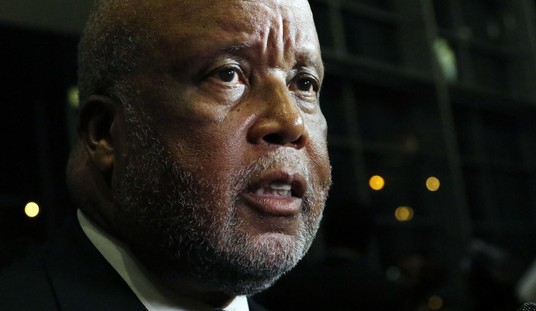Rand Paul’s 13-hour talkathon was pretty good theater. But if its histrionic quality was high, its policy content was zero. Paul whipped up the troops over the prospect of American armed forces targeting American citizens: that drone hovering over Cincinnati might have Mrs. Smith in its cross hairs while the one zooming in on Dallas is looking for Bill Joe.
But this is nonsense. It’s frenzy for the sake of frenzy. By far the best commentary on Senator Paul’s extraordinary performance is “What Rand Paul Misses,” Andy McCarthy’s essay at National Review Online.
I know, I know: to criticize Rand Paul at this juncture is to risk the wrath of his claque, which is about as tolerant of dissent as the Sierra Club or your local feminist nutcase. As Andy observes, “To cross Paul admirers can mean being cast into the neocon darkness, along with all those other cogs in the military-industrial complex who dream of a global American empire — and that’s even when the offense is not compounded by suggesting that Eric Holder might have been right about something.” So let me echo Andy’s declaration: “I am against using our armed forces to kill our citizens in our homeland.”
But that of course is not the issue. Rand Paul took nearly 13 hours of limelight to say—what? Andy gets to the heart of the issue in a hundred words or so:
there is a right way to do what Senator Paul says he wants to do, a way that does not involve messing around with the Constitution in a manner we will come to regret. Contrary to Senator Paul’s assertions, and those of senators Cruz and Mike Lee, who lent their voices and scholarly heft to Paul’s filibuster, the Constitution does not prohibit the use of lethal force in the United States against American citizens who collude with the enemy.
American history and jurisprudence teach that American citizens who join the enemy may be treated as the enemy: captured without warrant, detained indefinitely without trial, interrogated without counsel, accused of war crimes without grand-jury proceedings, tried by military commission without the protections of civilian due process, and executed promptly after conviction. That is because these measures are permissible under the laws of war, and the Constitution accommodates the laws of war — they are the rule of law when Congress has authorized warfare.
As usual, the Founders got it right. Andy quotes Alexander Hamilton, from Federalist 23:
it is impossible to foresee or define the extent and variety of national exigencies, or the correspondent extent and variety of the means which may be necessary to satisfy them. The circumstances that endanger the safety of nations are infinite; and for this reason no constitutional shackles can wisely be imposed on the power to which the care of it is committed.
Senator Paul and his supporters claim to want to impose limits on presidential power. The way to do that, as Andy points out, is through Congress’s Authorization for Use of Military Force, not by mucking about with the Constitution. When and if the world is rid of the terrorist threat, that authorization may be limited or even repealed. We’re a long way from that situation now, alas, as the headlines remind us every few days.
As I say, Rand Paul’s performance was good theater. But it had nothing to teach us about limiting presidential power. What it did tell us, however, was that Rand Paul is pretty clever in creating a national stage for himself. Everyone knows who he is now, which I suspect is exactly what he wants. Why? 2016, of course. It was a pretty cynical maneuver, I think, but politics is not exactly an purist’s pursuit. Rand Paul may have — doubtless does have — many virtues. I would have preferred a less demagogic approach.








Join the conversation as a VIP Member